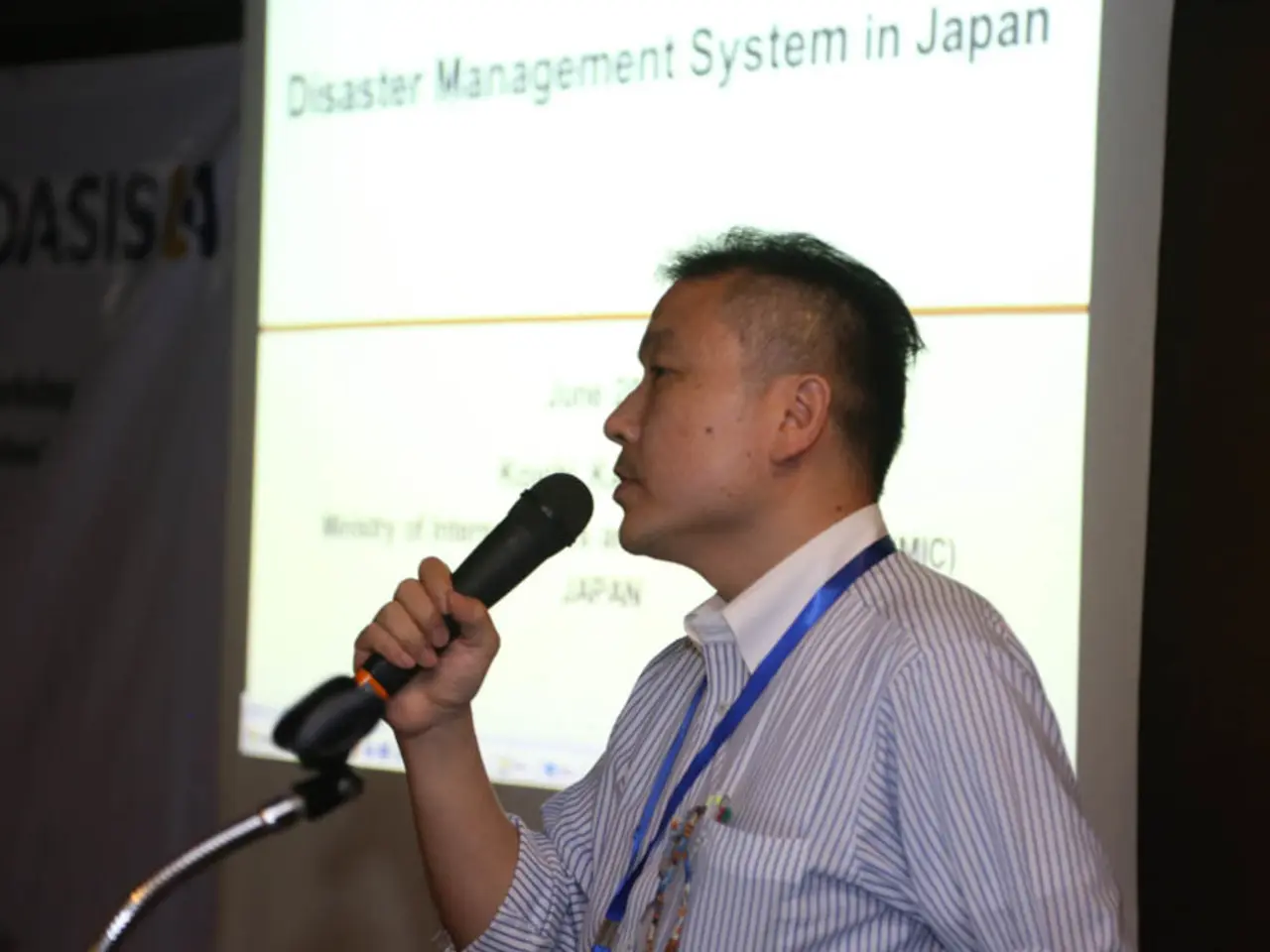International Relations: EU-US Partnership
In the waning days of World War II, on August 9, 1945, the United States dropped an atomic bomb on the Japanese city of Nagasaki. The bomb detonated about 500 meters above the city, instantly claiming an estimated 40,000 lives. The aftermath was devastating, with many more deaths from injuries and radiation sickness in the following months and years.
The immediate effects were catastrophic. Nagasaki suffered massive destruction, with an estimated 70,000 to 80,000 deaths by the end of 1945. The bombing also resulted in long-lasting radiation effects, such as acute radiation syndrome, burns, and increased cancer rates among survivors. The subsequent "black rain" that carried radioactive fallout caused additional burns and contamination.
The short-term consequence was pivotal. On August 10, 1945, the Japanese government announced its acceptance of the Allied Potsdam Declaration terms, effectively agreeing to unconditional surrender, which contributed directly to the end of World War II.
The long-term effects were far-reaching. The U.S. occupation of Japan under General Douglas MacArthur led to significant political, economic, and military reforms in Japanese society. The event marked the start of the nuclear age and the global nuclear arms race, with nuclear weapons becoming central to geopolitical power and deterrence during the ensuing Cold War between the United States and the Soviet Union.
The atomic bombing of Nagasaki, along with Hiroshima three days earlier, left a lasting symbol for nuclear disarmament advocacy and peace movements worldwide. Survivors (hibakusha) continue to grapple with enduring health issues, and ethical debates on the use of nuclear weapons and their humanitarian impact persist.
Seventy-seven years after the bombing, the event continues to shape international relations, nuclear policy, and the global movement for disarmament. Contemporary concerns include the threats of nuclear weapons from North Korea, Russia, and China, and the potential use of nuclear weapons by leaders such as former President Donald Trump and President Vladimir Putin.
Terumi Tanaka, a 93-year-old survivor of the atomic bombing of Nagasaki, has dedicated his life to educating others about the effects of atomic bombs. Despite his efforts, he feels that his message is not heard by Japan's conservatives, including Prime Minister Shigeru Ishiba.
Japan's defense budget has been doubled to two percent of GDP by Fumio Kishida, citing the need for rearmament due to volatile neighbors like North Korea, Russia, and China. However, there is a need for dialogue to bridge the divide between pacifists and militarization advocates, as Japan is torn between its pacifist constitution and the need for self-defense.
Politicians must avoid alarming neighbors with rapid militarization and avoid provocative actions such as visiting controversial pilgrimage sites like the Yasukuni Shrine. Japan's civil society has historically blocked overt militarization with large demonstrations, but today only a handful of protesters remain in Tokyo's government district.
The atomic bombing of Nagasaki serves as a stark reminder of the devastating consequences of nuclear weapons. As the world continues to grapple with the nuclear threat, the lessons of Nagasaki remain as relevant today as they were seven decades ago.
[1] Gellman, A. (2015). The bomb: Presidents, generals, and the secret history of nuclear weapons. Penguin Books. [2] Sagan, S. D. (1995). The limits of safety: Organizations, accidents, and nuclear weapons. Cornell University Press. [3] Yoshida, H. (2003). The making of postwar Japan: A personal account. Columbia University Press. [4] Ienaga, S. (1978). The Pacific War, 1931-1945. University of California Press. [5] International Campaign to Abolish Nuclear Weapons. (2017). Nobel Peace Prize laureate. Retrieved from https://www.icann.org/about/nobel-peace-prize/laureates/2017/index.html
- The catastrophic bombing of Nagasaki in 1945, alongside the bombing of Hiroshima three days earlier, has become a lasting symbol for nuclear disarmament advocacy and international peace movements, highlighting the long-term significance of nuclear weapons in political discourse and general news.
- In the contemporary era, the nuclear threat continues to be a central concern for international relations, with nations like North Korea, Russia, and China possessing nuclear capabilities, echoing the global nuclear arms race initiated by the Nagasaki bombing in the aftermath of World War II.






